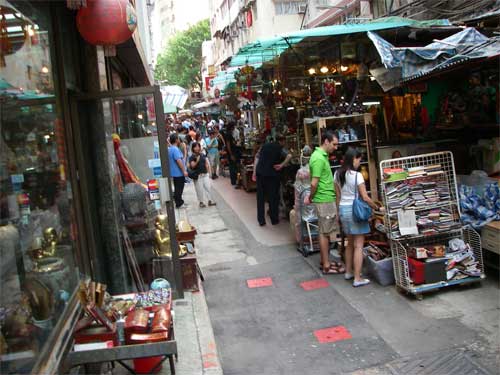TABLE
OF CONTENTS
|
Food and Health in Hong Kong
by Tatsuru Kimura

I could eat so
many kinds of delicious foods in Hong Kong. One can eat delicious food in the touristic
area, but if you step into the back streets of Hong Kong, it is easy to
find
the reasons why the foods taste so good in Hong
Kong.
It seems that
people are eager to get fresh food in Hong Kong. In local
markets, several live chickens are
packed in a cage two feet square. On
boathouses, they keep chickens to have fresh meat.
Although it is not rare to see live chickens
in markets in rural areas of my country, Japan, I had never seen
such scenes
in urban areas, especially along the streets between tall buildings. I even felt weird that I did not see the
scene where someone kills the chicken, despite having seen so many live
chickens
and eating so many chickens. In
Participating
in the Global: Transnational Social
Networks and Urban
Anthropology, Alan Smart writes about his fieldwork on Hong Kong’s functional transition to a global
financial
center and the change of society which is incidental to the transition. Although he focused on newly constructed areas
such as a residential area for factory workers, I think it is also
interesting
that such crowded and jumbled streets exist next to the sophisticated
financial
district.
In Hong
Kong, fish markets are everywhere and they are
lively even at night. Clerks fillet live
fish and shrimp in front of customers. Customers
choose fish so seriously, though all fish look
the same to
me. In front of some shops, a crowd of
people had gathered. According to
the
guide of a field practica I attended, some women wait for fish to die
since
dead or dying fish are much cheaper but they are still fresh. The guide also told us how to tell whether
cooked fish is fresh or not. People in Hong Kong are clearly very particular about
fresh food. In addition, the guide said
that people do not
like cultivated fish because it tastes different from naturally grown
fish. Recently, I see so many organic food
shops in
the U.S. or Japan
for the
people who are concerned about their health. I
guess, in contrast, Chinese naturally continued to take
organic food
because they simply like the tastes of organic
food and they know how
to tell which
is the good food.
More about food, I
realized the importance of the concept of “medication through eating”. There are a lot of Chinese medicine
shops
and the shops often sell food that is good for one’s health. Also, I could easily find desert shops that
provide varieties of sweet soup for relatively cheap price. The title of each soup tells how the soup
contributes to your health. For example,
the one I ordered is supposed to be good for my throat.
I do not know if the soup actually works for
my throat because it still hurts, but I am quite sure that Chinese like
this
type of food because the store was so crowded with men and women of all
ages.
Today, you can
find Chinese restaurants everywhere in the world. Chinese
people strain at getting good food
and this may enable the global spread of Chinese food.
|

